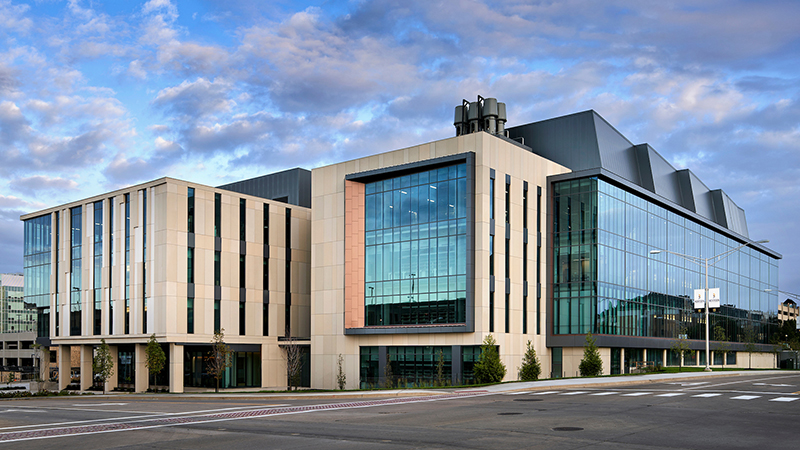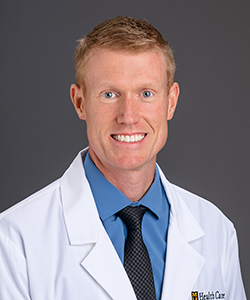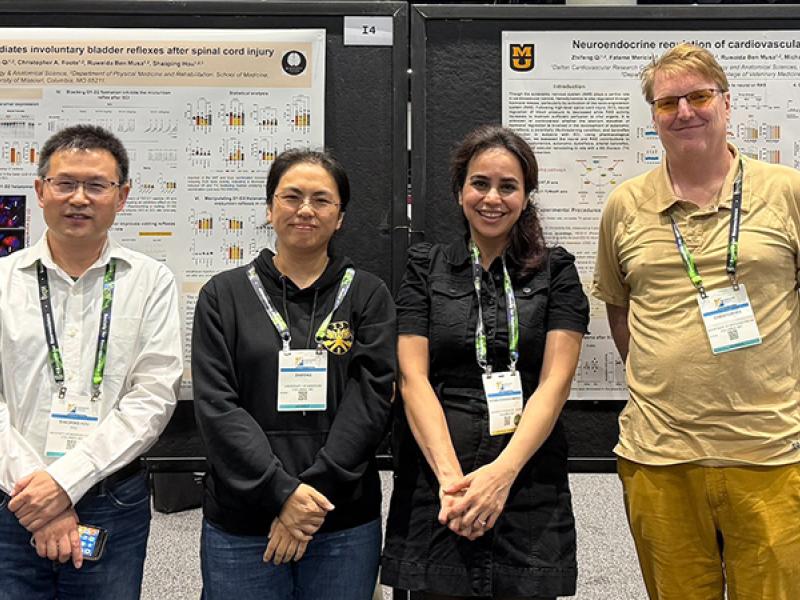
University of Missouri President Mun Choi and Executive Vice Chancellor for Health Affairs and dean of the School of Medicine Richard J. Barohn have named W. David Arnold as the next executive director of the NextGen Precision Health initiative. As executive director, Arnold will develop and implement next steps for the initiative with a comprehensive strategy for dynamic growth and establish clear pathways for continued success in research, innovation, economic development and cutting-edge discoveries.

“NextGen Precision Health is a critical component of MizzouForward and represents the most ambitious research initiative in our university’s storied history,” Choi said. “These investments are critically important to elevate our research performance as an AAU institution. Under Dr. Arnold’s leadership, MU will transform, achieve our objectives and improve the lives of people in Missouri and beyond through precision health breakthroughs.”
Highlighting the promise of personalized health care and the impact of large-scale interdisciplinary collaboration, the NextGen Precision Health initiative is bringing together innovators from across MU and the UM System’s three other research universities in pursuit of life-changing precision health advancements. It’s a collaborative effort to leverage the research strengths of Mizzou toward a better future for the health of Missourians and beyond. The Roy Blunt NextGen Precision Health building at MU anchors the overall initiative and expands collaboration among researchers, clinicians and industry partners in the state-of-the-art research facility.
As executive director, Arnold will report jointly to Thomas E. Spencer, vice chancellor for Research, and Barohn, the current executive director of the NextGen initiative. Arnold will officially join NextGen this fall.
“The promise of NextGen is connecting the right patient with the right treatment at the right time,” Barohn said. “To do that, we need the right leaders at the helm, and I have full confidence that Dr. David Arnold is the person to make MU a national leader in precision medicine.”
Arnold comes to MU from The Ohio State University, where he is a professor of neurology and has a joint appointment in physical medicine and rehabilitation. He is co-medical director of the Ohio Musculoskeletal and Neurological Institute and director of the Neurological Research Institute Center for Neurobiology of Aging and Resiliency.
“I’m excited to join the University of Missouri to lead the NextGen Precision Health initiative,” Arnold said. “NextGen Precision Health has united tremendously talented research teams and provides unparalleled resources to tackle today’s toughest health challenges. The initiative will accelerate development of preventative and restorative interventions and push translation of treatments to the clinic. I’m thrilled to join this exciting and critically important work.”
Arnold is board certified in neuromuscular medicine and physical medicine and rehabilitation by the American Board of Physical Medicine and Rehabilitation. He is a fellow of the American Academy of Physical Medicine and Rehabilitation, and the American Association of Neuromuscular and Electrodiagnostic Medicine. He is a member of the American Academy of Neurology.
Arnold earned his bachelor of science in biology from Cumberland College (now University of the Cumberlands) and his doctorate of medicine from the University of Louisville School of Medicine.
A well-respected clinician and researcher, Arnold’s clinical expertise involves genetic, sporadic and traumatic neuromuscular diseases, and the functional and rehabilitation aspects of hereditary and acquired neuromuscular disorders and age-related loss of physical function.
His research interests include age-related loss of muscle mass and muscle strength, as well as loss of physical function. He also has research interests in genetic neuromuscular disorders, such as spinal muscular atrophy and myotonic dystrophy. His current research focuses on changes in muscle with aging as a window into the overall aging process.
This story originally appeared in Show Me Mizzou on June 16, 2022





